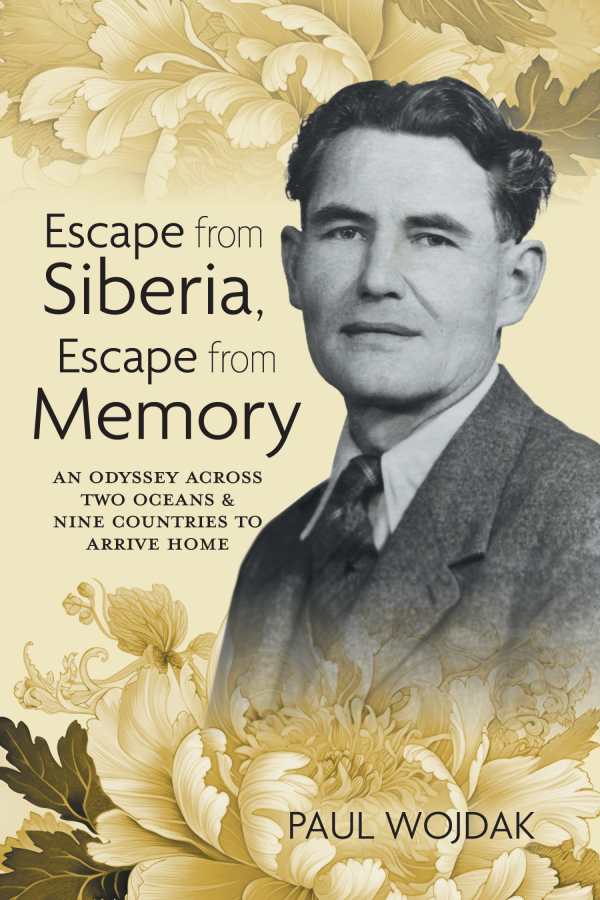Escape from Siberia, Escape from Memory
An Odyssey across Two Oceans & Nine Countries to Arrive Home
Escape from Siberia, Escape from Memory is a respectful biography that stands as a testament to the historical trials that the Polish people faced.
Paul Wojdak’s poignant biography of his father, a Siberian war orphan, Escape from Siberia, Escape from Memory reveals the tumult of the Russian Revolution.
Wojdak’s father, Pawel, was born in 1912 in Siberia, where his Polish family lived in exile. Once regarded as an outpost for dissidents, Siberia’s vast natural resources prompted economic development and the construction of the Trans-Siberian Railway. Then, the Russian Revolution brought civil war to the region along with the rampages of the Red Army. Pawel’s parents were casualties of the displacement and violence; by the age of seven, he joined the ranks of the many other Polish Siberian orphaned and abandoned children who were left starving, homeless, and vulnerable to disease.
Pawel is fleshed out in this historical context, as a reserved man who loved his family, nature, and his adopted Canadian homeland. While he’s positioned as a survivor, the book avoids lionizing him. And because Pawel was reticent to discuss his childhood ordeals—including relocations, his impoverished adolescence, and his experiences of World War II combat—holes remain. Still, his “fragmentary memories” are afforded respectful space, as are the unanswerable questions about his life as seen from the outside. There’s removed coverage of the anguish he suppressed and the adaptability that he was forced to nurture.
Also at the book’s center is a concise history of Polish oppression, in particular beginning with the end of World War I and the redefinition of European borders. Though an independent Polish republic was established, its citizens dealt with foreign kaisers and czars, as well as Nazi and Soviet dictatorships; the murders of 22,000 Polish officers in the Katyn Forest massacre rendered Russia a “recurring and ruthless enemy.” And the book contrasts the horrors of war-torn Siberia with the exemplary kindness and care that the Polish orphans received abroad, including in Japan, inspiring later cultural celebrations of the children’s host countries in Poland.
Indeed, Pawel’s story is often treated as being best understood as but one in a collective of displaced Polish children’s accounts. It is made to exist in parallel to Poland’s long plight and gradual reemergence as an independent nation: the children experienced psychological tumult, the book shows, as well as survivor’s guilt and repressed trauma, having sometimes witnessed the arrests and executions of loved ones. Further, the book makes use of historical notes, interviews, and personal accounts of travels to Japan and Poland to populate the blank spaces in its story of Pawel’s life. And throughout, salient information regarding the Siberian orphans is proffered in a tidy manner, including via charts that record some of the children’s names, original locations, and destinations. Maps and photographs are also present to support the narrative.
A son’s expansive biography of his father, Escape from Siberia, Escape from Memory stands as a testament to the historical trials that the Polish people faced.
Reviewed by
Meg Nola
Disclosure: This article is not an endorsement, but a review. The publisher of this book provided free copies of the book and paid a small fee to have their book reviewed by a professional reviewer. Foreword Reviews and Clarion Reviews make no guarantee that the publisher will receive a positive review. Foreword Magazine, Inc. is disclosing this in accordance with the Federal Trade Commission’s 16 CFR, Part 255.

